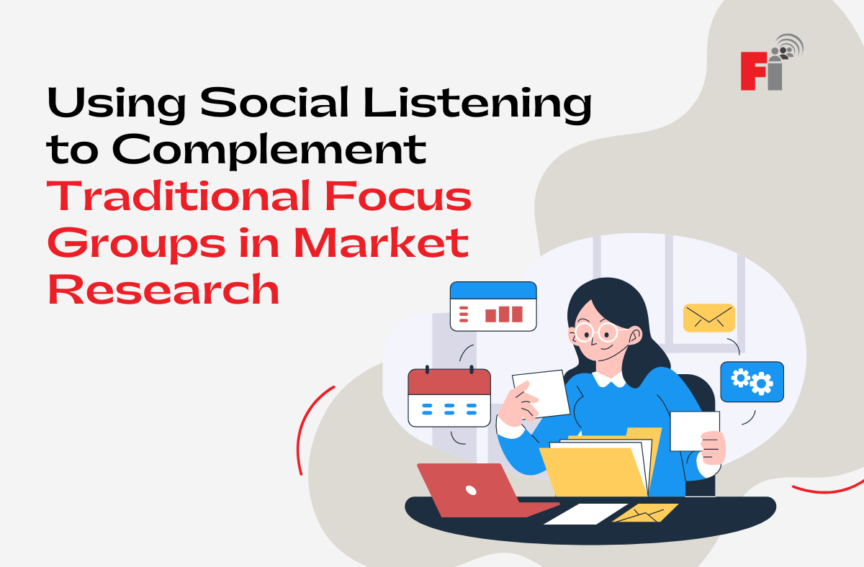For years, traditional focus groups have been a fundamental method in qualitative market research, offering researchers direct insights from consumers. While these groups can provide valuable information, they also have their limitations. Participants might knowingly or unknowingly adjust their answers, which can lead to responses that don’t fully capture their genuine thoughts or emotions. To address this, more researchers are now incorporating social listening to gather spontaneous, unfiltered feedback from consumers.
The Limitations of Focus Groups
While focus groups are designed to encourage open and honest discussion, participants are often aware that they’re being observed. This awareness can lead to responses that are more polished or rehearsed, as participants might tailor their feedback to fit perceived expectations. Additionally, in a group setting, certain participants may dominate the conversation, which can influence the opinions of others or prevent quieter individuals from sharing their honest thoughts.
Focus groups also rely on actively soliciting input through guided questions, which means that some underlying sentiments or emerging trends might not surface if they’re not part of the discussion guide.
The Power of Social Listening in Qualitative Market Research
Social listening offers a way to capture real-time, unsolicited conversations happening across social media and online platforms. Unlike focus groups, which take place in a controlled setting, social media conversations are organic, allowing researchers to tap into consumers’ spontaneous thoughts, feelings, and experiences.
By leveraging social listening tools, researchers can:
Capture Unfiltered Sentiments: Social media provides consumers with a space to express their opinions freely and without the constraints of a research setting. This can lead to more candid, unguarded feedback.
Track Real-Time Conversations: With social listening, researchers can observe how conversations about products, services, or brands evolve over time. This adds a dynamic element that traditional focus groups can’t provide in a single session.
Identify New Themes: By analyzing social media conversations, researchers can uncover emerging themes or trends that may not have been discussed in a focus group but are gaining traction online.
Combining Social Listening with Focus Groups for Deeper Insights
While social listening provides valuable unfiltered insights, it works best when combined with traditional focus groups. By using both methods, researchers can cross-validate findings, comparing what is said in a controlled environment with the sentiments expressed online. This dual approach offers a richer, more nuanced understanding of consumer behavior.
For example, if a focus group reveals that participants have concerns about a product’s packaging, social listening can help determine whether similar concerns are being discussed organically on social media. This approach allows researchers to capture both prompted and unprompted feedback, resulting in a more complete picture of consumer sentiments.
How Focus Insite Enhances Your Qualitative Research
At Focus Insite, we specialize in conducting comprehensive qualitative market research that uncovers actionable insights. While we focus on traditional qualitative methods such as focus groups, we recognize the value of integrating tools like social listening to complement and enrich these insights. By combining both methods, we ensure that our clients gain a deeper understanding of their audience’s unfiltered opinions, both in and out of the research setting.
Your Partner in Qualitative Market Research
The evolving landscape of qualitative market research requires a blend of traditional and innovative approaches to uncover the most valuable consumer insights. Focus Insite is committed to helping businesses tap into both structured feedback and real-time online conversations to make more informed decisions.
Contact us today to explore how our expert qualitative market research services can give you the edge you need in understanding consumer behavior.


